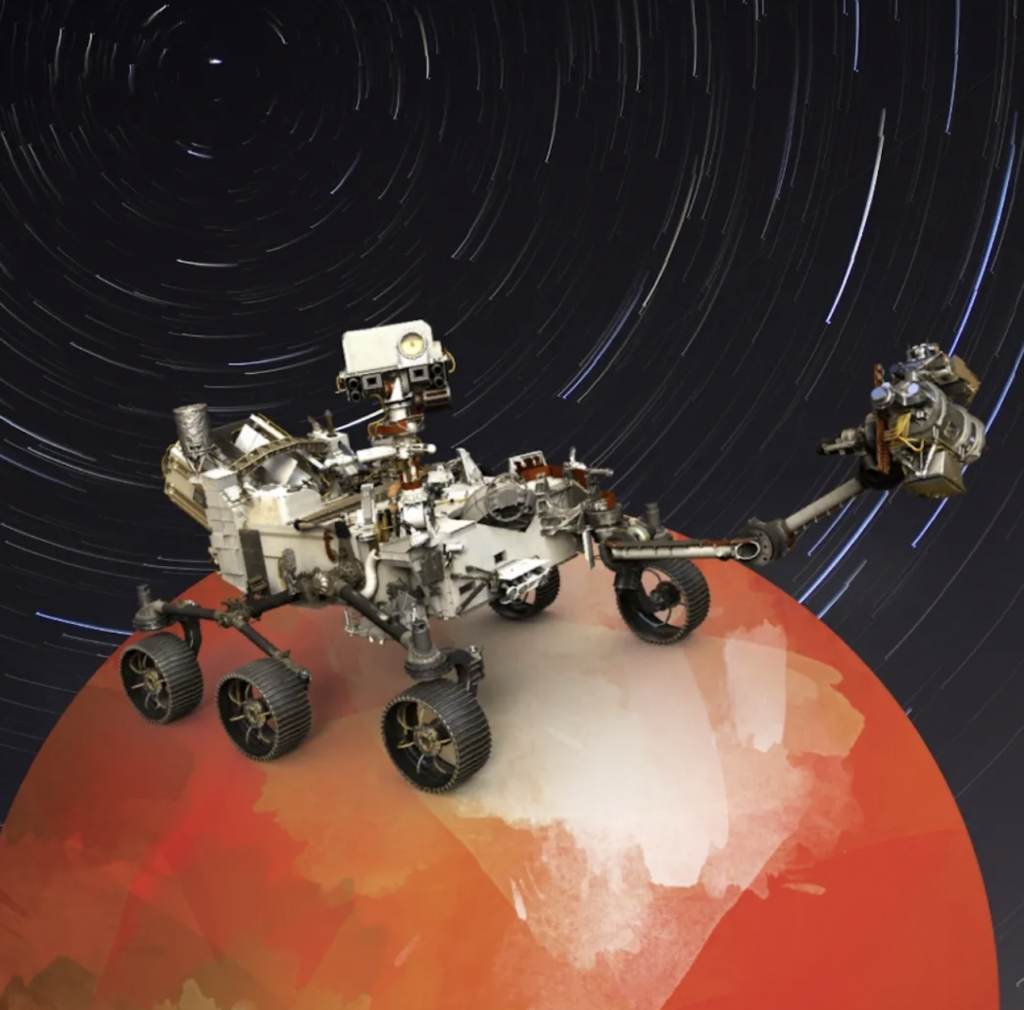Aren’t we always looking for ways to make science relevant? Searching for real-world examples and scientists who are doing cool things?
Aren’t we also dying for low-prep lessons, or a way to fill that last class before spring break?
Well, it’s never been easier to bring a history-making world science event into our classrooms because humans are in the midst of searching for…
LIFE ON MARS!
On February 18, 2021, NASA successfully landed the Perseverance rover in Jezero Crater on Mars and their plans from here are incredible. This is something that every. single. science teacher. should be talking about with their learners right now!

Not an expert? Well few people are, considering this Mars mission is happening as we speak!
Luckily for us, PBS NOVA does an amazing job of laying it out for us in their recent episode titled “Looking for Life on Mars: The Perseverance Rover Mission.” In a year where everyone is pretty tired and overwhelmed, take a couple of days and let PBS take the lead by showing this doc to your class. It’s less than an hour, it’s FULL of easy-to-follow explanations about various aspects of the mission, and the narrators are scientists who are talking about their own work firsthand.
HUGE BONUS: Many of the scientists who have made this mission happen are young women and BIPOC!

I don’t work for PBS NOVA (lol) but I WISH I did because all I want to do is advertise their phenomenal content for teachers. It can feel like we’re cheating when we show movies in class, but I trust NASA researchers to talk about their work better than I can.
With all documentaries, I like to have students answer questions on movie guides as they watch in order to keep them tuned in and latching on to important information. If you’d like to skip the process of creating your own, you can check out what I’ve put together.
I also lay out my process of watching movies in order to maximize retention of content in this blog post.
The documentary and a discussion is an incredible lesson on its own, but you can take the learning a step further if you want to delve a bit deeper into this mission. Again, let’s focus on low-prep for you and let students take the lead to do some research from this point.
These were a few of the areas that came to mind for me:
Chemistry:
Students can explore…
- the elements CHNOPS and their relationship with life on Earth and Mars;
- the chemistry of Mars (composition of crust, atmosphere, etc.);
- the origin of elements (fusion reactions in stars and supernovas);
- materials chemistry and Mars; or
- the conversion of CO2 into O2 on Mars (this is introduced in the movie).
Biology:
Students can explore…
- signs of life on Mars;
- the elements CHNOPS and their relationship with life on Earth and Mars;
- microbes found in stromatolites (What does this look like on Earth? Why is it something they’re looking at on Mars?);
- what would be necessary for humans to live on Mars;
- where else in space are we hopeful to find life;
- what we know about extremophiles and how is this related to Mars;
- how and why everything needs to be sterile before being sent to Mars; or
- the panspermia hypothesis.
Physics:
Students can explore:
- the engineering capabilities of the Perseverance (How do different parts move? What are its photography capabilities? What tasks is it designed for? Why were certain materials selected?);
- the Ingenuity helicopter (How and why is flight different on Mars?);
- the engineering of the descent module that brought the rover to Mars (things like thermal braking, parachutes, sky crane, etc.);
- how the time delay between Mars and Earth affects the mission (ex: why can we not control the rover from earth);
- the launch window for Mars missions.
There are lots of options about what you’d like students to do with this research, but I’d give a few options and let them do something that’s fun for them. They can research in groups and then make posters, infographics, foldables, models, a trivia game, add to a Jamboard, or (my favourite) contribute to a class bulletin board!
That’s it! I’d love to hear how other people are showcasing the Mars mission with their students!
Scientifically yours,
Mo
Interested in weekly science teaching tips? Click here!
Interested in other blog posts? Check out:
I NEEDED to change the way I taught this topic!
My Favorite Twist on a Research Project
A Simple Routine to Promote Reflection and Positive Relationships
Using YouTube for an Alternative Bell Ringer
My Top 5 Movies for the Science Classroom
My Favorite Way to Start the Science School Year
My Favorite Way to Review Vocabulary in High School Science
An Unexpected Way to Foster Positivity in the Classroom
March Mammal Madness: What’s all the hype about?
The Top 23 Teaching Interview Questions
Using Case Studies in the Science Classroom



